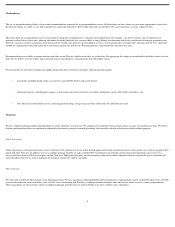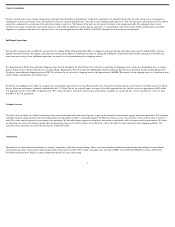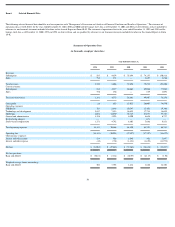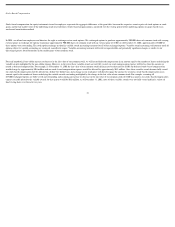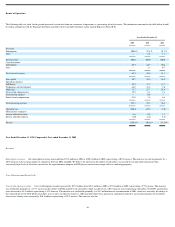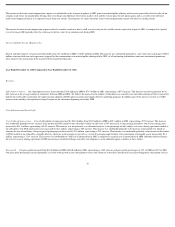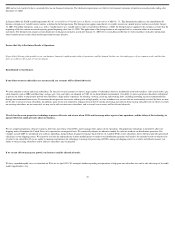NetFlix 2002 Annual Report Download - page 24
Download and view the complete annual report
Please find page 24 of the 2002 NetFlix annual report below. You can navigate through the pages in the report by either clicking on the pages listed below, or by using the keyword search tool below to find specific information within the annual report.
Stock−Based Compensation
Stock−based compensation for equity instruments issued to employees represents the aggregate difference, at the grant date, between the respective exercise price of stock options or stock
grants and the fair market value of the underlying stock less forfeitures. Stock−based compensation is amortized over the vesting period of the underlying options or grants based on an
accelerated amortization method.
In 2001, we offered our employees and directors the right to exchange certain stock options. We exchanged options to purchase approximately 900,000 shares of common stock with varying
exercise prices in exchange for options to purchase approximately 900,000 shares of common stock with an exercise price of $3.00. As of December 31, 2002, approximately 635,000 of
these options were outstanding. The stock option exchange resulted in variable award accounting treatment for all of the exchanged options. Variable award accounting will continue until all
options subject to variable accounting are exercised, cancelled or expire. Variable accounting treatment will result in unpredictable and potentially significant charges or credits to our
operating expenses from fluctuations in the market price of our common stock.
For each hypothetical one−dollar increase or decrease in the fair value of our common stock, we will record deferred compensation in an amount equal to the number of shares underlying the
variable awards multiplied by the one−dollar change. However, to the extent these variable awards are not fully vested, our stock compensation expense will be less than the amount we
record as deferred compensation. For example, if at December 31, 2002 the fair value of our common stock had increased or decreased by $1.00, our deferred stock−based compensation
would change by approximately $0.6 million and our stock−based compensation expense would be affected by approximately $0.3 million. Once these variable awards become fully vested,
our stock based compensation will be affected on a dollar−for−dollar basis and a change in our stock price will directly impact the amount we record as stock−based compensation in an
amount equal to the number of shares underlying the variable awards outstanding multiplied by the change in the fair value of our common stock. For example, assuming all
635,000 exchanged options are fully vested and outstanding and assuming an increase or decrease in the fair value of our common stock of $1.00 in a quarter, our stock−based compensation
expense or credit related to the variable awards for that quarter would be $0.6 million. As of December 31, 2002, most of these variable awards were not fully vested and had a variety of
final vesting dates over the next two years.
15



